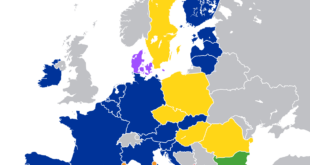The Finance Ministry has amended money laundering rules to incorporate more disclosures for non-governmental organisations by reporting entities like financial institutions, banking companies or intermediaries.
| PMLA Act
Prevention of Money Laundering Act, 2002 was enacted to fight against the criminal offence of legalizing the income/profits from an illegal source. The Prevention of Money Laundering Act, 2002 enables the Government or the public authority to confiscate the property earned from the illegally gained proceeds. Any person who directly or indirectly: · Attempts to indulge. · Assists the person who is actually involved in any process is a party to the activity connected with the proceeds of crime. · The Act was formulated for the following objectives: · Prevent money-laundering. · Combat/prevent channelising of money into illegal activities and economic crimes. · Provide for the confiscation of property derived from, or involved/used in, money-laundering. · Provide for matters connected and incidental to the acts of money laundering. · Actions that can be initiated against persons involved in ML: · Seizure/freezing of property and records and attachment of property obtained with the proceeds of crime. · Any person who commits the offence of money laundering shall be punishable with – · Rigorous imprisonment for a minimum term of three years and this may extend up to seven years. · Fine (without any limit). |
The amendments:
Identifying beneficial owner:
- The amended rules have also lowered the threshold for identifying beneficial owners by reporting entities, where the client is acting on behalf of its beneficial owner, in line with the Companies Act and Income-tax Act.
- The term ‘beneficial owner’ was defined to mean ownership of or entitlement to more than 25 per cent of shares or capital or profit of the company, which has now been reduced to 10 per cent, thereby bringing more indirect participants within the reporting net.
Registering details of client:
Reporting entities are now required to register details of the client if it’s a non-profit organisation on the DARPAN portal of NITI Aayog.
Definition of non-profit organisation:
- The definition of a non-profit organisation has also been amended and linked to the definition of charitable purpose provided under Section 2(15) of the Income Tax Act, 1961.
- It will include any entity or organisation, constituted for religious or charitable purposes under I-T Act, that is registered as a trust or society under the Societies Registration Act or any similar state legislation or a company registered under the Companies Act.
- Definition of politically exposed persons:
- It has defined politically exposed persons (PEPs) under the Prevention of Money Laundering Act (PMLA) in line with the recommendations of the Financial Action Task Force (FATF).
- It defines Politically Exposed Persons as individuals who have been entrusted with prominent public functions by a foreign country.
Who are included in the definition?
- the heads of States or Governments,
- senior politicians,
- senior government or judicial or military officers,
- senior executives of state-owned corporations and
- important political party officials.
- The amendment is in relation to foreign PEPs and not domestic ones.
- The move to define politically exposed persons under PMLA is to bring uniformity with a 2008 circular of the Reserve Bank of India (RBI) for KYC norms/anti-money laundering standards for banks and financial institutions.
Significance of the FATF-related changes
- In its recommendations, the FATF states that financial institutions should be required to have appropriate risk-management systems to determine whether:
- a customer or beneficial owner is a domestic PEP or
- a person who is or has been entrusted with a prominent function by an international organisation.
- The broader objective is to bring in legal uniformity and remove ambiguities before the FATF assessment.
- The 40 recommendations cover seven areas and provide a framework of measures.
- This is to help countries tackle illicit financial flows to ensure authorities can take action to detect and disrupt financial flows that fuel crime and terrorism.
The seven areas are:
- anti-money laundering/counter-terrorist financing;
- policies and coordination;
- money laundering and confiscation;
- terrorist financing and financing of proliferation;
- preventive measures;
- transparency and beneficial ownership of legal persons and arrangements;
- powers and responsibilities of competent authorities and other institutional measures and international cooperation.
 Chinmaya IAS Academy – Current Affairs Chinmaya IAS Academy – Current Affairs
Chinmaya IAS Academy – Current Affairs Chinmaya IAS Academy – Current Affairs



